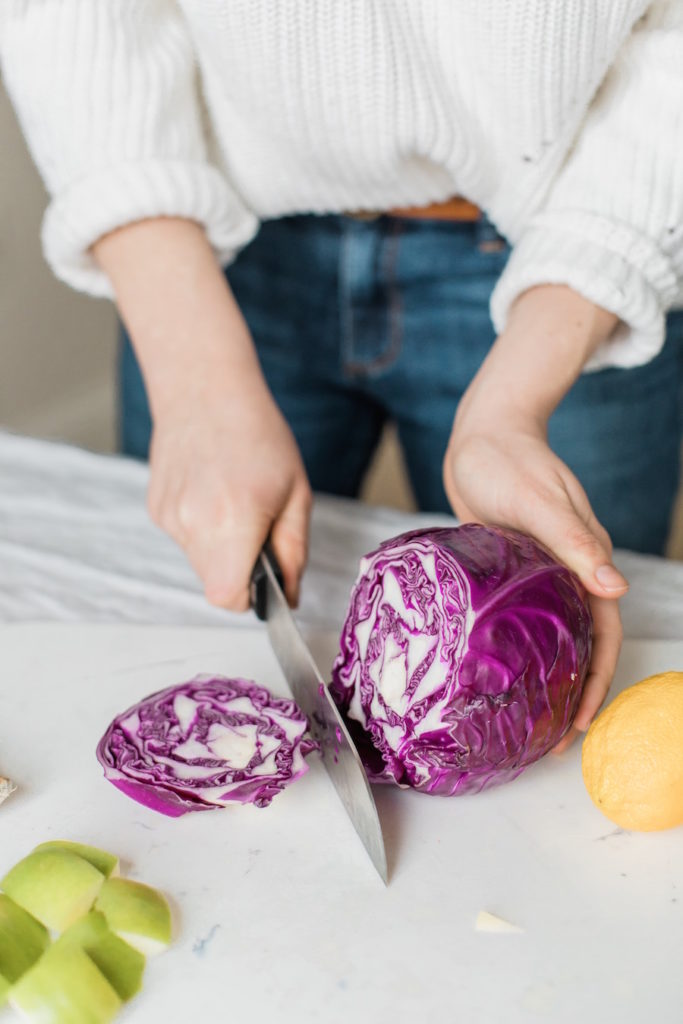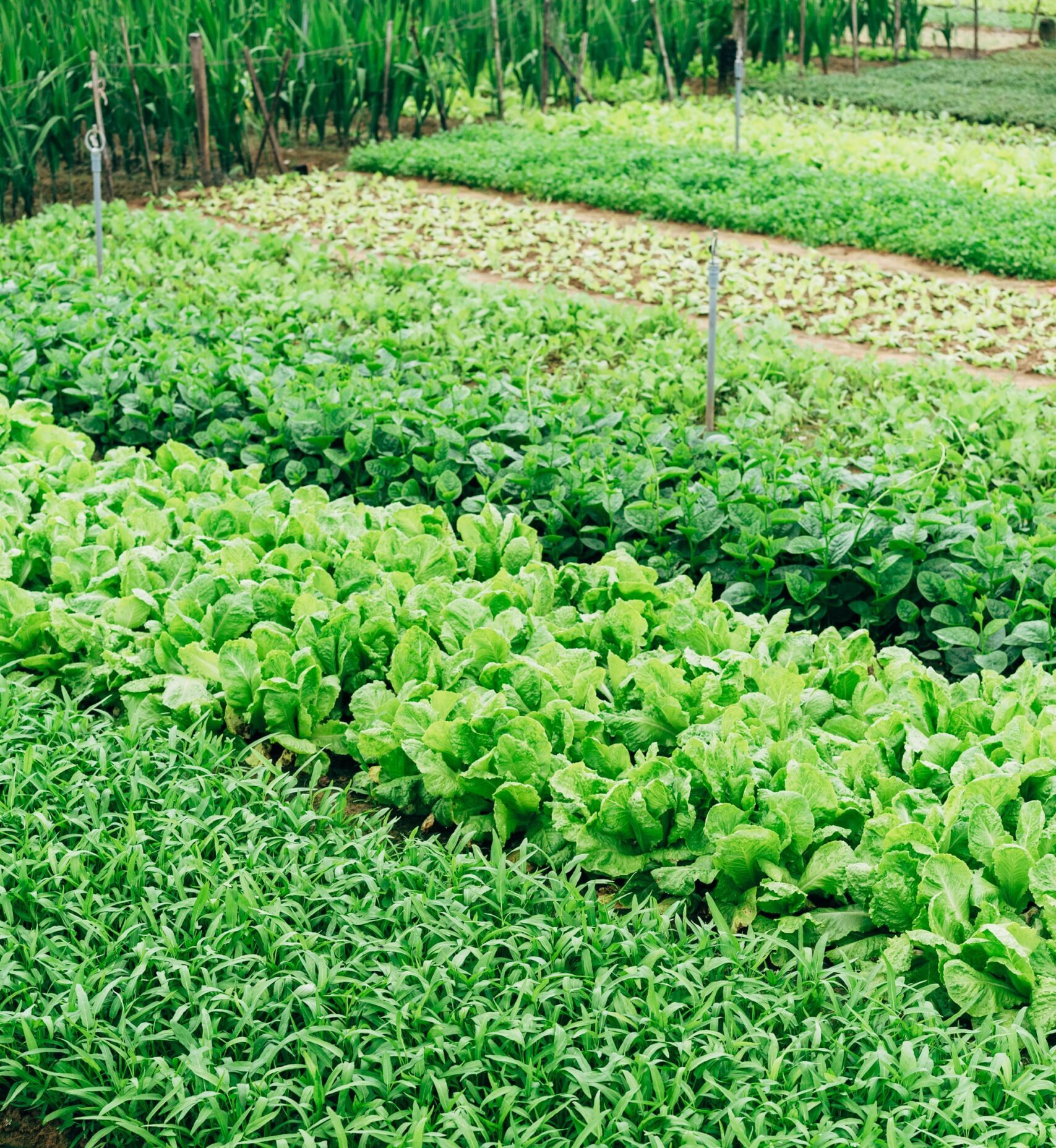When was the last time you’ve taken a good, hard look at your trash?
With the busy lives we lead, it’s easy to go on autopilot and not be conscious of the waste we’re making on a daily basis. Sometimes that last minute weekend trip means coming home to a fridge full of wilting produce—we’re human. Even if you are a compost master, there’s still a possibility that you could be getting more out of what’s in your fridge and on your countertops. Finding creative ways to make the most out of your grocery haul is not only kind to your wallet, but also a huge help in taking unnecessary strain off of the planet.
Let’s look at a few facts.
According to the National Resource Defense Council, up to 40% of food in America goes uneaten each year. The resulting food waste generates the same amount of greenhouse gas emissions as 37 million cars annually, and takes up roughly 20% of all American cropland and water only to end up in the landfill. When you add on top of all of this that 41 million Americans are food insecure, it only deepens the problem and highlights the inefficiency of our collective attitudes and habits surrounding food. If we were able to salvage and redirect only 15% of food wasted in the US, we could feed around 25 million people with it. A natural solution to a problem, right?
With this in mind, challenge yourself to pay attention to what you’re tossing out this week.
Simple Tips To Reducing Food Waste
• Buy less, more often. Instead of going to the store every week or two and truly stocking up, aim to head to the grocery or farmer’s market 2-3 times a week. Go in with a realistic plan of what you want, and have the time to whip up for those few days. Don’t forget to bring along some reusable produce and shopping bags!
• Store properly. Did you know that tomatoes do better on your counter than in your fridge? Or that asparagus lasts longer room temp in a glass of water (just remember to change the water twice a week)? Check out this list from the Ecology Center on how to properly store your favorites.
• Be transparent. Don’t clutter your fridge and store your produce, leftovers and prepped meals in glass, so you know exactly what you’ve got on hand at all times.
• Everything but the kitchen sink. Make meals that can incorporate a lot of what’s in your fridge— think big salads, stir fries, and roasted vegetables. Pair them with different spices, sauces and dressings so the combinations don’t get boring.
• Try the cold treatment. If you have wilted or flimsy high-water content vegetables on your hands (e.g. celery, broccoli, carrots, lettuce, spinach), soak them in in a bowl of ice cold water and they’ll crisp back to life.
• Your freezer is your friend. Leftover greens, veggies or fruits you don’t feel like eating before they turn? Freeze them! Then you can easily throw them in your next smoothie, soup, or stir fry. This is also a great way to mix it up if you meal prep. Instead of feeling pressured to get through this week’s curry, save it for when you’re craving it (and haven’t eaten it three days in a row). Pro tip: when freezing fruits, spread them evenly on a baking sheet first so it doesn’t clump. Once frozen, transfer to your container of choice.
• Save the odds and ends. Your onions tops, carrot nubs, corn cobs, and other veggie scraps are perfect for making vegetable broth. Just toss them into a big glass container, store it in your freezer, and add to it as your week goes on. When it’s full, transfer everything into a pot and you’ll have free broth on deck whenever you need it.
• Herb’s the word. Herbs, if not properly cared for, can wilt and turn quickly. So firstly, make sure you’re storing them right. Just like asparagus, herbs like to be kept in a partially filled glass of water, covering just the stems. Change the water when it’s no longer clear. Cilantro likes to be kept in the fridge, but parsley and basil prefer to be kept at room temp. Know you won’t go through them? Hang dry them, or pop them in a dehydrator and grind them up so you have tasty, homemade dried herbs all year long.
• Hold onto your peels. There’s so much you can do with citrus peels, and often they’re just thrown away. Try saving your orange peels to make a DIY cleaning spray. In a container, cover your peels with vinegar and let the mixture sit somewhere dark for two weeks. Strain and transfer to a spray bottle, filling it half way. Dilute with water. You can also zest lemons, oranges and limes to bump up the flavor profile in a dish, and freeze the excess. You could even candy the peels, just make sure that you’re using organic citrus.
• Pickle or ferment. What’s better in life than a pickled red onion? If you have vinegar and sugar on hand, you can ferment and pickle a wide variety of vegetables very inexpensively. Bonus, it’s fairly low maintenance and will add months to their shelf life.
• Make your own vinegar. Don’t toss your apple peels and cores, make your own vinegar with them! All you need is your scraps and a little sugar. Try out this recipe.
• Regrow. Dreaming of an indoor organic garden? You can start your own with little investment if you put your scraps to work. Basil left with its stems in water will sprout—once sprouted, transfer it to a pot, and you’ve got a basil plant. Try throwing the base of a green onion in water, it’ll shoot back up quickly. You can also regrow lettuce, bok choy, sweet potato, cilantro, ginger, and even pineapple.
• Compost. Have a moldy situation on your hands there’s simply no saving? Embrace the compost. Composting is an incredible way to give nutrients back to the earth, instead of to the landfill. If you don’t have the time to do it yourself, look into a pick-up service or see if your city has municipal compost. Even though it’s a much better solution than filling up your trash, you still want to aim to keep your compost light. After all, it is still waste.
What are your favorite ways to conserve in the kitchen?
__
Photo: Heather Ford on Unsplash





